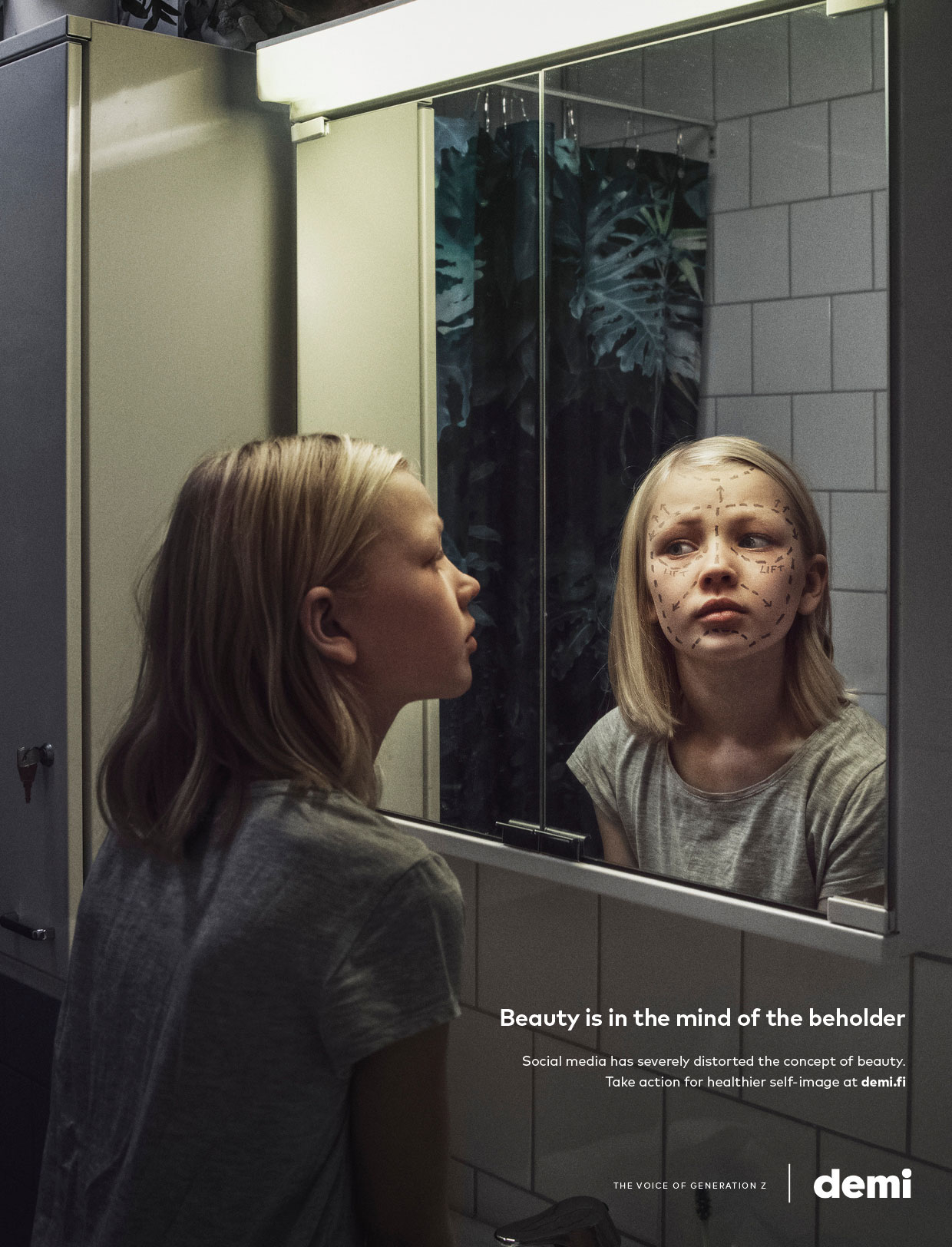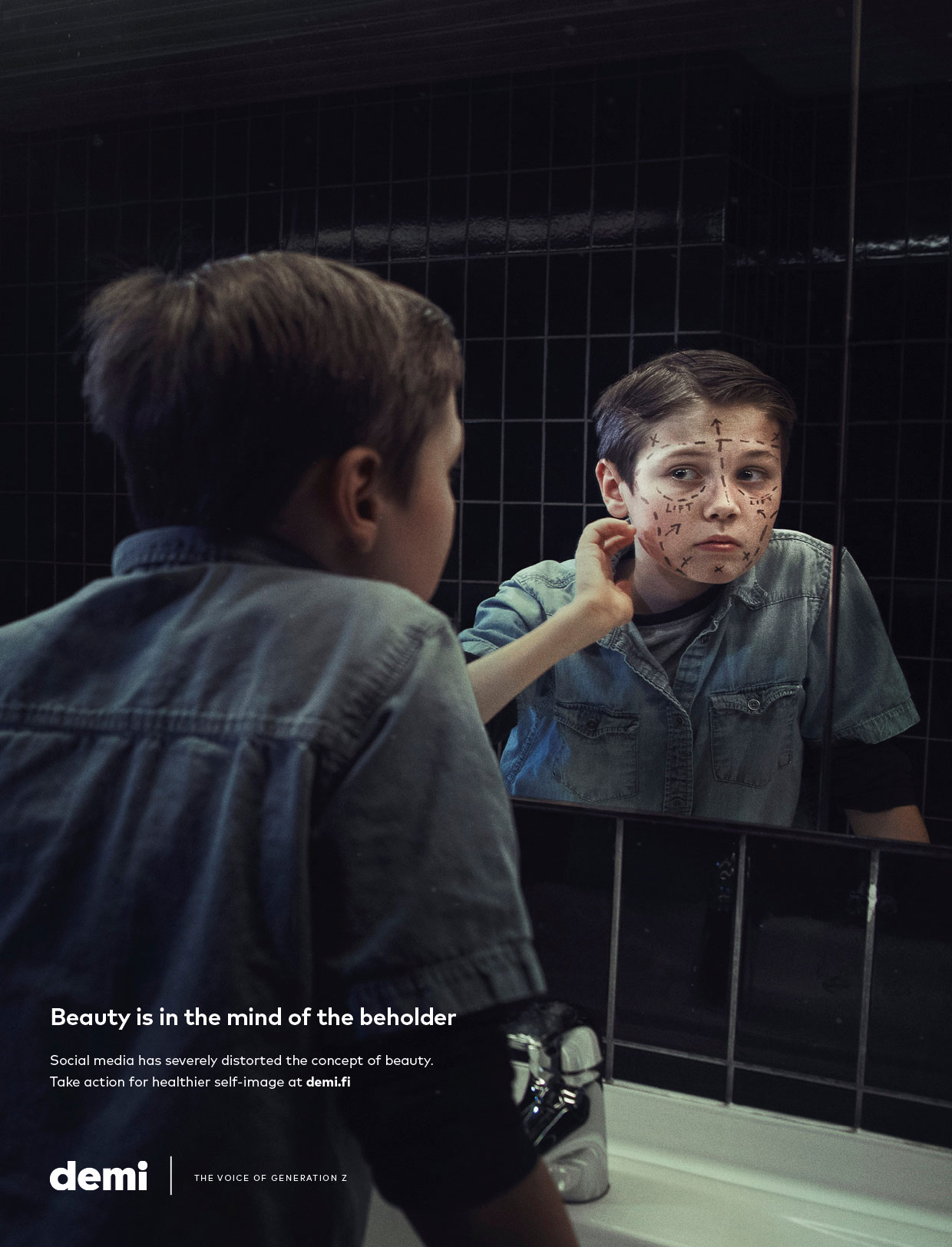We all know that children today are more vulnerable to self-esteem issues, not only because of beauty magazines but also due to the inescapable nature of social media and the rise of the Instagram model aesthetic. Facetune and filters distort the self-image of people, including young children, and feed an ideal that is as far from natural as can be.
As always, media has the power to influence the current standards of beauty – either by adding the pressure to look a certain way or alleviating it. Praising people for the way they look or chastising them for it.
Finnish web community Demi, which is targeted to younger audiences, launched a campaign in the hopes of opening a conversation regarding the pressure of the many beauty standards teenagers have to face.
“As a young people’s media, we are very aware of media’s influence in shaping what is considered to be beautiful. That’s why we represent real people instead of models in our media outlets. Not to mention, that there are so many other important topics besides beauty to talk about”, says the Editor in Chief of Demi, Päivi Lehtomurto


The campaign is quite simple, we see children looking at themselves in the mirror, and their reflections have surgical outlines drawn over their faces for each perceived imperfection they want to fix. The image is immediately understood. These kids have 'Instagram/Snapchat dysmorphia’ as it is known, and are worrying about their appearance.
The photoshoot was done together with Tuukka Koski from Koski Syväri Agency. Kasimir Häiväoja from FLC Helsinki carried out the post-processing.
“Traditionally images like these are shot in a controlled studio environment and the photos edited in post-processing to look plastic-like. The viewer recognizes it easily as advertising – something that is not necessarily true. That’s why we tried to create realistic, yet dramatic, real-life looking photography for the viewer to identify better with the people in the images”, explains the Creative Director of TBWA\Helsinki, Erno Reinikainen
